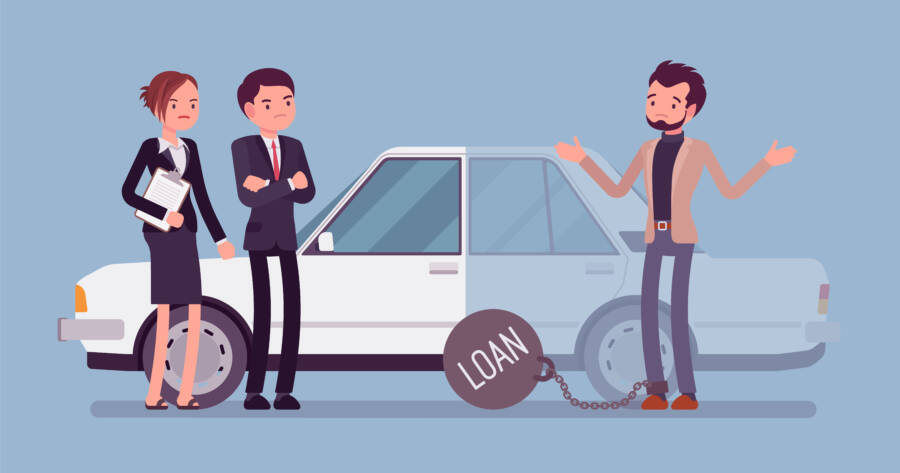For many Americans, having a car is a necessity. Maybe you live somewhere without adequate public transportation. Maybe you need a car to get to work, take children to school, or make regular visits to aging parents. Whatever the season, this need certainly comes with a cost. In short, driving isn’t cheap. And if you have bad credit, being approved for any kind of car loan can be a chore. Luckily, there are a few lenders who specialize in bad credit car loans. Here’s what you need to know.
What is a Bad Credit Car Loan?
A bad car credit loan is a loan for people whose credit score isn’t high enough for them to receive a traditional loan. Normally, those would be through an automotive dealer or financial institution. Bad credit car loans enable people to buy a vehicle when they otherwise wouldn’t qualify for financing.
In general, bad credit loans are a separate category of personal loans. They exist for people who have low credit scores or no credit at all. While bad credit loans do exist for automotive purchases, they can also be used to pay for other things. You can get a bad credit loan for car repairs, medical bills, in the event of a job loss, or even to consolidate high interest debt.
How They Work
Bad credit car loans work the same way as most other loans. You borrow money from a bank or other lender, and then pay it back in fixed monthly installments, plus interest. Be warned, though, that the interest rates charges on bad credit loans, including car loans, tend to be extremely high.
Banks, credit unions, and online lenders tend to have stringent credit score standards for typical borrowers. These lenders will review your credit history to determine if you qualify for a loan. Your credit history will determine the cost of your loan — that is, the term and interest rate available. Due to their stringent requirements, many traditional lenders will turn down loan applications from people with low or no credit scores.
Credit Scores Explained
Many financial institutions require a ‘good’ or ‘excellent’ credit score. This is typically a FICO score of 670 or higher. Anything above that should qualify you for a loan with the lowest interest rates attached.
Experian, Equifax, and TransUnion are the major U.S. credit bureaus. They can give consumers a credit report, which is a detailed document of their credit history. Your credit report will itemize your payment history on any debts or loans you’ve had over the years, including any debts you failed to pay.
Using this information, the credit bureaus will summarize your credit history to assign you a numeric ranking for your credit. That number is known as a credit score, or a FICO score. A FICO score is a credit score assigned by the Fair Isaac Corp. — thus the short form “FICO” — that gives a synopsis of your credit report.
What’s In A Credit Score
There is plenty of information on your credit report. It’s all factored into your credit score. Some of the common inclusions are how long you’ve had credit, the amounts you owe, your credit utilization, the types of credit you have (credit cards, lines of credit, mortgages), how much “new credit” you have, and whether you’ve been late with any payments.
Lenders use FICO scores to determine how likely you are to repay a loan, including for a vehicle purchase. Your score can impact how much you can borrow, the repayment period, the interest rate, or even if you qualify at all. If you have a bad credit score, it will negatively impact the terms of your loan. You may not even qualify without seeking out an alternative lender.
Those with credit scores of less than 580 are typically viewed by financial institutions as “risky” borrowers. The lower your credit score, the higher the risk. Creditors will be less likely to lend you any money at all. When rejected by traditional lenders, people often turn to bad credit loans.
The Cost Of Bad Credit Loans
The total cost of any loan depends on a number of factors. How much is borrowed, the term length, and the interest rate all play into it. Additional set-up fees or late payment penalties could also be included. The interest rate is especially important, as it’s basically the cost you have to pay in order to borrow the money.
Interest rates themselves are based on multiple things. Your credit score, of course, is one of them. But the loan amount, term, and other fees can all factor into the interest rate you receive. Bad credit loans will typically have higher interest rates than traditional loans.
A typical car loan might carry an interest rate of 3-to-7%. It would depend on whether you’re buying new or used, the purchase amount, and your credit history. In comparison, a bad credit car loan might come with a rate of 12-to-15%. In some cases, it could even be higher. It all depends on your own credit situation and what the lender is comfortable with.
Managing Bad Credit Car Loans
While expensive, there are ways to manage bad credit car loans. The key factor in keeping the costs manageable is to make payments on time. This can help to avoid costly late fees and other financial penalties that can quickly add up.
It’s also important to take a loan out with a lender that is reputable and legitimate. There are a lot of scams (especially online) that seek to rip you off and steal your money or personal information. This can be avoided by taking time to search and educate yourself on the companies that make bad credit car loans.
Future Refinancing
Down the road, you can also consider refinancing your bad credit car loan. Hopefully, you’ll make all of your payments on time and in full. After a short period of time (at least six months), your credit score may have improved enough to qualify for a cheaper loan. You can shop around for a lender who will pay off your high-interest loan, trading it for a less expensive one.
Refinancing a loan takes some patience. First, you’ll have to wait long enough for your credit score to improve. This could include outside factors, like reducing credit card debt or removing mistakes from your credit report. Once your credit is looking better, shop around various banks for a better rate than your bad credit loan. Over the remaining months of a five or six year auto loan, a lower interest rate could end up saving you thousands of dollars.
Searching For A Lender
Always do your research before selecting a lender. Check their Google reviews, read up on their Better Business Bureau rating, and educate yourself on their policies and payment requirements. You don’t want any nasty (or costly) surprises after you’ve signed on the dotted line.
Some lenders charge origination fees and other costs. If you’re considering a loan from such a lender, you’ll want all fees to be prominently displayed and explained in detail. Always be willing to ask questions about what you don’t understand. Remember that there are no bad questions. In some cases, these fees can be negotiated down (or removed completely).
Examples Of Bad Credit Car Lenders
There are quite a few bad credit lenders available, most of which can be easily found online. A few of the more prominent lenders include Payoff, Lending Club, Prosper, and Freedom Debt Relief. Most have online and Better Business Bureau ratings that can be viewed online.
Most of the more reputable bad credit lenders have their loan terms and interest rates posted prominently on their websites. There are also comparison websites where you can see different lenders next to each other, along with their terms and rates.
Warning Signs
Signs that a bad credit lender might be a scam include if the lender is not concerned with your credit history, the loan is only offered via the telephone, the company is unregistered in the state where you live, and the lender asks you to wire them money or pay a specific person.
If a lender’s name is similar (but not the same) as another well-respected company, that can also be a tip off that the loan might not be legitimate. When in doubt, trust your instincts. Remember that it’s always better to be safe than sorry when it comes to your money.
The Bottom Line
Bad credit loans used to purchase a vehicle (or anything else) aren’t ideal. They typically charge higher interest rates, have punitive charges for late or missed payments, and the repayment timeline can be shortened, with hard-to-meet deadlines.
In general, bad credit loans should be avoided. You should only take out a bad credit loan when a traditional loan with more favorable terms is completely unavailable. The best advice is to build a good credit score before you need a loan, so that you’re not stuck with expensive terms. If you really have no choice, shop around for the best bad credit car loan you can. Then, hope to refinance it under better terms after the first year.








